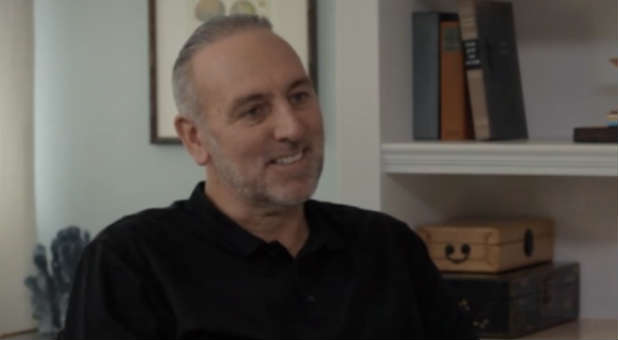There’s a lot we can learn from this week’s viral internet accusation that Carl Lentz, pastor of Hillsong NYC, allowed an openly homosexual couple to participate in and help lead a church choir.
The report was posted on Saturday, and by the next day, everywhere I turned, people were asking, “Is this true?” (My ministry team then reached out to Hillsong NYC for clarification.)
Others, not waiting for verification, believed the worst and went on the attack, not just blasting Hillsong in New York City but also across the globe.
On Wednesday, Brian Houston, leader of Hillsong and Carl Lentz’s pastor, issued two statements.
In the first statement, he affirmed that Hillsong held to the clear scriptural teaching on the subject of homosexuality and that marriage was the union of a man and woman, also stating that while gays were loved and welcomed in his church, practicing homosexuals could not participate in any leadership or ministry role.
In the second statement, he categorically denied the Internet rumors, saying that the church was completely surprised when they learned about this couple being in a homosexual relationship and that to his knowledge, they had not since been involved in any ministry or leadership role in the church. He then reaffirmed his love for them and stated that they, like the rest of us, were on a journey.
Pastor Lentz affirmed both of these statements on Twitter, and I immediately posted them as widely as I could, with appreciation to Pastor Houston for addressing these issues publicly.
But there are two obvious lessons from this week’s events.
First, as Christians, we are often all too quick to believe and then repeat a rumor rather than hoping for the best and waiting until the evidence is in. Why are we so quick to attack and accuse, especially when we don’t even know if the stories are true? Is this a demonstration of love?
How would we feel if the same was done to us—to our families, to our congregations, to our reputations—and people we didn’t even know helped spread lies about us, lies that can color people’s thinking for years to come?
With the speed with which things fly around the world today via the Internet, and with the difficulty of undoing something once it’s been done, we had better be sure that we have our facts in order and our attitudes right before making a public declaration or sharing our opinion (if there’s even a need for us to do either).
I have often been burdened to address issues in writing or on radio, and I always do my best to get all the facts in order, also trying to reach out privately whenever possible before addressing things publicly.
But earlier this year I had to apologize publicly to a national leader for relying on an article that grouped his quotes together as if they came from the same message, giving a misleading impression (even though the quotes were accurate and of real concern).
So what I write here, I write for myself as well as for others. Let’s be sure we have our facts in order before coming to any conclusions.
The second lesson is that it’s essential that Christian leaders speak clearly on the controversial doctrinal and moral issues of the day. It is possible (and essential) to have both compassion and clarity.
To use Paul’s words (from a very different context), “Even in the case of lifeless things that make sounds, such as the flute or harp, how will anyone know what tune is being played unless there is a distinction in the notes? Again, if the trumpet does not sound a clear call, who will get ready for battle? So it is with you. Unless you speak intelligible words with your tongue, how will anyone know what you are saying? You will just be speaking into the air” (1 Cor. 14:7-9).
I recently listened to a five-minute interview with one of America’s most famous pastors in which he was gently pressed for clarity on his views on homosexuality and the church, and his answers could hardly have been more fuzzy.
And that’s part of the problem with the accusation against Hillsong NYC: Pastor Lentz had failed to speak clearly to the issue at least twice last year, both on network TV and on the Huffington Post online.
In fact, as I watched the Huffington Post interview, trying to put the best construction on it and rooting for Pastor Lentz, I said to myself, “If I was this interviewer, I would absolutely believe that homosexual couples would be welcomed without restriction into the life and ministry of his church.”
That’s why I reached out to Pastor Lentz last year as well, offering help not condemnation, believing that God is using him to reach NYers with the Good News of the gospel.
The question is: Why can’t we be clear from the start? Why say things that avoid direct answers and instead lead to confusion?
I fully understand the need not to get trapped by the secular media—I’ve been in the hot seat enough times to know the drill—and I commend Christian leaders who will say what they feel is important rather than play along with the agenda of a hostile interviewer. (For Pastor Houston addressing this when it comes to “gay marriage,” go here.)
Yet there’s such a thing as speaking the truth with wisdom and in love, and throughout Scripture, honest, open rebuke is seen as a sign of love.
Unfortunately, fair questions are now being asked concerning Pastor Houston’s first statement issued on Wednesday, where he said, “So if you are gay, are you welcome at Hillsong Church? Of course! You are welcome to attend, worship with us, and participate as a congregation member with the assurance that you are personally included and accepted within our community. But (this is where it gets vexing), can you take an active leadership role? No.”
What exactly does this mean? Is he speaking about someone who is same-sex attracted but rejects those attractions and is living a holy life before the Lord? Or is he speaking about a practicing homosexual? If so, on what basis can he or she “participate as a congregation member with the assurance that you are personally included and accepted within our community”?
Would Pastor Houston say the same thing about a couple living together out of wedlock? Would he say the same thing about a non-repentant alcoholic? If so, what of Paul’s clear teaching in 1 Corinthians 5 about how to deal with professing Christians who will not repent?
I am cheering on Pastor Houston and Pastor Lentz, praying that they will make Jesus known even more in Australia and New York City and the nations, and like millions of others, I have been personally blessed by Hillsong’s many wonderful worship songs.
That’s why I urge my brothers and colleagues to speak with a clear, unambiguous and scripturally sound voice, not just in church settings but before the secular media as well.
If we are to be the salt of the earth and the light of the world—or, as Dr. Martin Luther King Jr. once said, “the moral conscience” of the society—we cannot lose our saltiness and we must shine brightly and without shame, in deed and in word.
The same world that hates us is actually depending on us.
Michael Brown is the host of the nationally syndicated talk radio show “The Line of Fire” and is the president of FIRE School of Ministry. His newest book (September 2015) is Outlasting the Gay Revolution: Where Homosexual Activism Is Really Going and How to Turn the Tide. Connect with him on Facebook at AskDrBrown or on Twitter @drmichaellbrown
See an error in this article?
To contact us or to submit an article























